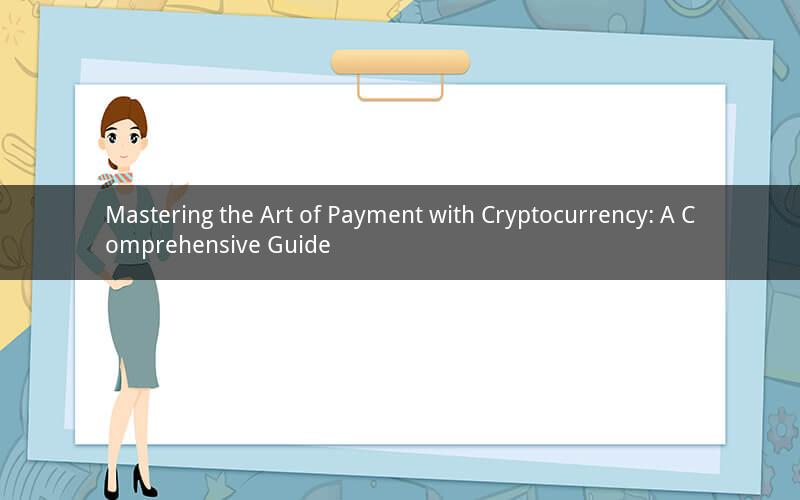
Cryptocurrency has revolutionized the way we conduct financial transactions. Its decentralized nature, enhanced security features, and the ability to transfer funds without intermediaries have made it an attractive option for both individuals and businesses. In this article, we will explore how to pay using cryptocurrency, highlighting the various methods, benefits, and challenges associated with this innovative payment system.
Understanding Cryptocurrency Payments
Before delving into the process of paying with cryptocurrency, it's essential to understand what it entails. Cryptocurrency is a digital or virtual currency that uses cryptography for security. Unlike traditional fiat currencies, cryptocurrencies operate on a decentralized network called blockchain, ensuring transparency, security, and efficiency in transactions.
Choosing a Cryptocurrency
The first step in paying with cryptocurrency is to choose the right cryptocurrency. With numerous cryptocurrencies available, such as Bitcoin, Ethereum, Litecoin, and Ripple, it's important to research and select a cryptocurrency that aligns with your needs. Factors to consider include the popularity of the cryptocurrency, its market capitalization, transaction fees, and the availability of merchants accepting it.
Setting Up a Cryptocurrency Wallet
To pay with cryptocurrency, you need a digital wallet. A cryptocurrency wallet is a software application that allows you to store, send, and receive cryptocurrencies. There are various types of wallets, including mobile wallets, desktop wallets, hardware wallets, and web wallets. When choosing a wallet, ensure it supports the cryptocurrency you want to use and offers robust security features.
Funding Your Cryptocurrency Wallet
Once you have a cryptocurrency wallet, the next step is to fund it. There are several ways to acquire cryptocurrencies:
1. Buying Cryptocurrency: Purchase cryptocurrencies from a reputable exchange or broker. Be sure to research the platform's reputation, security measures, and transaction fees before making a purchase.
2. Mining: If you have the technical expertise and hardware, you can mine cryptocurrencies. Mining involves solving complex mathematical problems to validate transactions and earn rewards in the form of cryptocurrencies.
3. Accepting Cryptocurrency: Some individuals and businesses accept cryptocurrency in exchange for goods or services. If you have the means to accept cryptocurrency, it can be a convenient way to acquire it.
4. Gift Cards and Vouchers: You can also buy cryptocurrency gift cards or vouchers at various retailers and exchange them for digital currency.
Paying with Cryptocurrency
Once your wallet is funded, you can start paying with cryptocurrency. Here's how:
1. Select a Merchant: Look for businesses that accept cryptocurrency payments. Many online stores, e-commerce platforms, and brick-and-mortar establishments now accept various cryptocurrencies.
2. Check the Payment Options: Ensure the merchant offers a cryptocurrency payment option. This may be displayed as a digital currency logo or a specific payment method.
3. Enter Your Cryptocurrency Address: When prompted, enter your cryptocurrency wallet address. This is a unique identifier that allows the merchant to send you the payment.
4. Review the Transaction: Double-check the transaction details, including the amount to be paid and the cryptocurrency you're using. Be cautious, as entering the wrong address or amount can result in losing your funds.
5. Confirm the Transaction: Once you've verified the transaction details, confirm the payment. This may involve sending the payment directly from your wallet or using a payment service that facilitates the transaction.
6. Wait for Confirmation: After confirming the payment, wait for the transaction to be processed. This may take a few minutes to several hours, depending on the cryptocurrency and network congestion.
Benefits of Cryptocurrency Payments
Paying with cryptocurrency offers several advantages:
1. Security: Cryptocurrency transactions are secure, thanks to blockchain technology. Once a transaction is confirmed, it's nearly impossible to alter or delete.
2. Low Transaction Fees: Cryptocurrency transactions often have lower fees compared to traditional payment methods, especially for international transfers.
3. Fast and Convenient: Cryptocurrency payments can be processed quickly, allowing for faster and more convenient transactions.
4. Privacy: Cryptocurrency transactions can offer a level of privacy, as they don't require personal information like a bank account or credit card number.
Challenges and Risks
Despite its benefits, cryptocurrency payments also come with challenges and risks:
1. Volatility: Cryptocurrency prices can be highly volatile, leading to significant gains or losses.
2. Security Risks: Cryptocurrency wallets and exchanges can be targets for hackers, so it's crucial to use robust security measures.
3. Regulatory Uncertainty: The regulatory landscape for cryptocurrencies is still evolving, which can create uncertainty and potential legal issues.
4. Lack of Merchant Acceptance: While acceptance of cryptocurrency is growing, it's not yet widespread, which can limit your options when paying with this method.
FAQs
1. Q: Can I pay with cryptocurrency in physical stores?
A: Yes, many physical stores now accept cryptocurrency payments. Check with your local merchants to see if they offer this option.
2. Q: Is it safe to store my cryptocurrency in a mobile wallet?
A: Mobile wallets can be safe, but it's essential to use a reputable wallet with strong security features. Avoid storing large amounts of cryptocurrency in a mobile wallet, as it may be more susceptible to theft or loss.
3. Q: How do I know if a cryptocurrency payment is secure?
A: You can verify the security of a cryptocurrency payment by checking the reputation of the merchant and the transaction platform, as well as ensuring that your wallet has robust security features.
4. Q: What are the fees associated with paying with cryptocurrency?
A: Cryptocurrency transaction fees vary depending on the network and the amount of traffic. Some networks may have lower fees than others.
5. Q: Can I use cryptocurrency to pay my utility bills?
A: Some utility providers accept cryptocurrency payments, but it's not yet widespread. Check with your service providers to see if they offer this option.